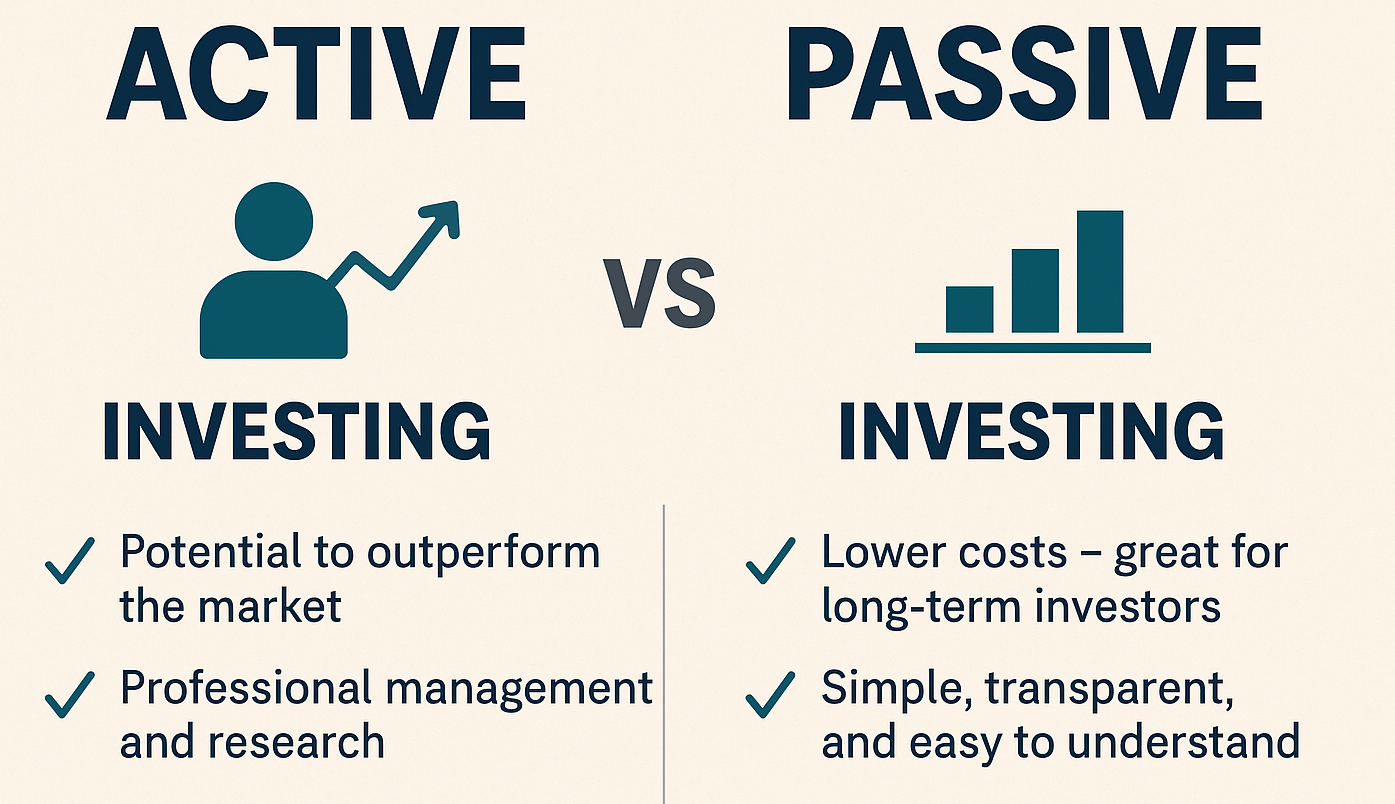Active vs Passive Investing: Which Strategy Works Best for Everyday Australians?

When it comes to investing, one of the most common questions people ask is: “Should I go with an active fund manager or stick with passive investments like index funds?”
It’s a good question — and the answer isn’t always straightforward. Both approaches have their pros and cons, and understanding the difference can help you make smarter choices for your superannuation, retirement savings, or personal investment portfolio.
What’s the difference?
Active investing means a fund manager is making decisions about which shares, bonds, or other assets to buy and sell. Their goal is to “beat the market” by identifying opportunities and avoiding risks.
Passive investing, on the other hand, simply tracks an index — like the ASX200 or the S&P500. Instead of trying to beat the market, you accept the market return (minus very low fees).
Pros and cons of each approach
Active funds
✅ Potential to outperform the market
✅ Professional management and research
❌ Higher fees, which can eat into returns over time
❌ Not all managers outperform consistently
Passive funds (index funds/ETFs)
✅ Lower costs — great for long-term investors
✅ Simple, transparent, and easy to understand
✅ Historically hard for most active managers to consistently beat index returns after fees
❌ No ability to adjust quickly to market changes or downturns
What this means for superannuation and retirement
For everyday Australians, costs matter — especially when you’re investing for the long term through superannuation. Lower fees from passive investing can make a significant difference over decades.
That said, some investors like having a mix of active and passive options. For example, you might use index funds for broad market exposure, while adding some active strategies in specific areas (like small companies or emerging markets) where managers may add value.
When planning for retirement, blending these approaches can also give flexibility. For instance, by using index ETFs across different asset classes, pension payments can be drawn strategically — from defensive assets during downturns, and from growth assets when markets are strong.
So, which is best?
There’s no one-size-fits-all answer. The “best” strategy depends on your goals, time frame, and comfort with risk. Some people prefer the simplicity and cost savings of index funds, while others value the potential upside of active management.
The important thing is having a clear investment plan that matches your situation — not just following a trend or picking at random.
Final thoughts
Whether you lean towards active, passive, or a combination of both, the key is making sure your investments are working for you and aligned with your long-term goals.
If you’d like to talk through what approach might suit you — whether for your super, investments, or retirement planning — feel free to get in touch. At Elevate Financial Planning, we help Australians cut through the noise and make confident, informed financial decisions.
For personalised financial services and advice, speak with your Financial Advisor today at Elevate Financial Planning
- Arlan Davine













